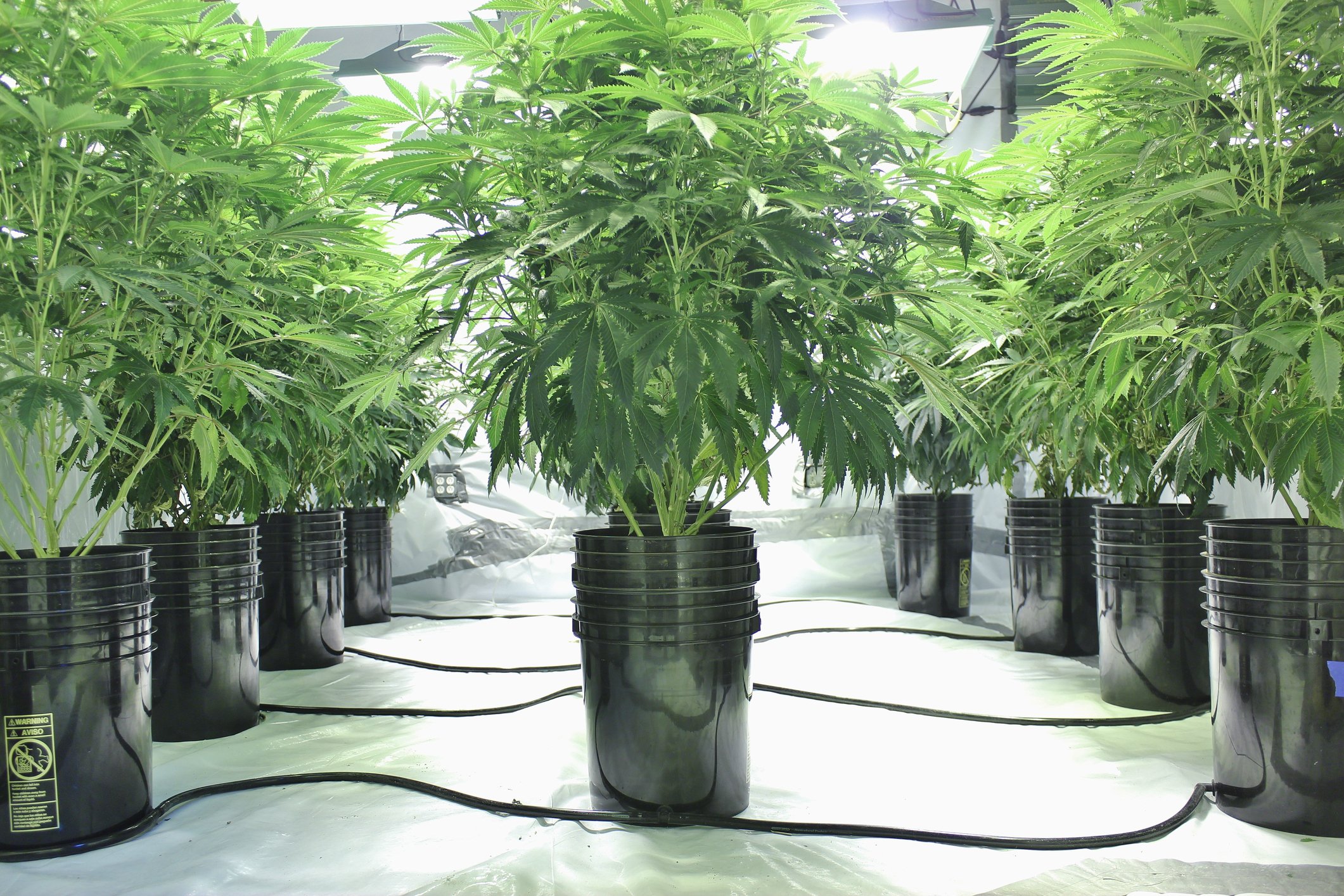For the past 13 months, the once-hot marijuana industry has been ice cold. Following a first quarter in 2019 that saw more than a dozen pot stocks gain at least 70%, the vast majority of North American cannabis stocks have lost between 50% and 95% of their value ever since.
To our north, regulatory issues are predominantly to blame, with Health Canada delaying the launch of high-margin derivatives by two months, and Ontario's provincial regulators dropping the ball on retail store licensing. The result has been shortages of product in some provinces and supply bottlenecks in other regions.

Image source: Getty Images.
Meanwhile, in the U.S., high tax rates on legal pot products have made it virtually impossible for licensed producers to be cost-competitive with the black market.
As the icing on the cake, access to traditional forms of financing has remained elusive for many North American cannabis companies.
And yet, despite these adversities, some marijuana stocks managed to deliver the green for shareholders in April. Though pot stocks remains decisively lower than they were at this time last year, the following nine marijuana stocks were a bright spot for investors last month, with each delivering gains of at least 15%.
- Neptune Wellness Solutions (NEPT +0.00%): Up 79%
- Harvest Health & Recreation: Up 48%
- Cresco Labs (CRLBF +1.92%): Up 33%
- MediPharm Labs (MEDIF +0.39%): Up 26%
- Green Thumb Industries (GTBIF 0.30%): Up 24%
- Curaleaf Holdings: Up 20%
- Aphria (APHA +0.00%): Up 17%
- Tilray: Up 16%
- Planet 13 Holdings (PLNH.F 3.77%): Up 15%
While these best marijuana stocks for April likely looks like a random hodgepodge of companies, there are some trends that stand out.

Image source: Getty Images.
U.S. multistate operators are ready to shine
If there's one very clear trend among the top-performing cannabis stocks in April, it's that Wall Street and investors are optimistic about the potential of U.S. multistate operators (MSO). That's because five of the top nine performers -- Harvest Health, Cresco, Green Thumb, Curaleaf, and Planet 13 -- are MSOs.
One thing to take note of is that U.S. MSOs aren't facing nearly as many issues as vertically integrated marijuana stocks in Canada. With few exceptions, MSOs have a reasonably large retail network to sell their products, and they've been able to secure cultivation and sales licenses in a timely manner. That's not always been the case for vertically integrated Canadian pot stocks.
Additionally, the U.S. is a considerably larger cannabis market, in peak dollar terms, than Canada. Cresco Labs, which is angling to get its products into more than 500 California dispensaries, and Green Thumb Industries, which is establishing a sizable presence in Illinois and Nevada, both look to be closing in on recurring profitability. Meanwhile, Planet 13's SuperStore just west of the Las Vegas Strip is responsible for a little more than 9% of Nevada's total weed sales. The path to profitability is much clearer for MSOs than Canadian licensed producers.

Image source: Getty Images.
Extraction-service providers may still offer value as derivatives take flight
Another trend that stands out is the outperformance in two out of the big three extraction-service providers: Neptune Wellness Solutions and MediPharm Labs.
In mid-December, derivatives (e.g., edibles, vapes, infused beverages, concentrates, and topicals) hit dispensary shelves for the first time in Canada. Since derivatives are a much higher margin product than traditional dried cannabis flower, they're expected to be a priority in the portfolios of licensed producers. But in order to produce derivatives, cannabis and hemp biomass needs to be extracted for resins, distillates, concentrates, and targeted cannabinoids. That's where Neptune and MediPharm come in.
MediPharm may be benefiting from the fact that it's one of only a select few pot stocks that's been generating recurring profits. In fact, it took less than five months after turning on the lights for this processing company to begin generating an operating profit.
As for Neptune, it received an added boost in April when it announced plans to increase its hand sanitizer production capacity at its Conover, North Carolina, facility to 1 million units per week. With the coronavirus disease 2019 (COVID-19) still a concern, investors are clearly excited about Neptune's efforts to help, as well as improve its income statement.

Image source: Getty Images.
Earnings do matter
Finally, the release of quarterly operating results proved to be a catalyst in April for a small number of pot stocks.
For example, some of the 17% increase in Aphria's share price last month can be attributed to the release of its fiscal third-quarter operating results on April 14. For Q3 2020, Aphria reported a 54% sequential quarterly increase in recreational weed revenue, and net revenue of $144.4 million Canadian, which was up 96% from the prior-year period. Keep in mind that Aphria's drug distribution operations generate the bulk of its sales. All told, the company managed net income of CA$5.7 million, or CA$0.02 per share. Since profitability is rare among Canadian pot stocks, this report certainly stood out.
The same goes for Planet 13 Holdings, which reported its 2019 full-year results and first-quarter sales on the same day as Aphria. Despite the negative effects of COVID-19 in March, Planet 13 still managed approximately 20% year-over-year growth in Q1 2020 sales, and delivered $9.9 million in adjusted EBITDA for full-year 2019. With many of the expansionary costs associated with the SuperStore now in the rearview mirror, a normalization of tourism to Las Vegas should allow Planet 13 to shine.










